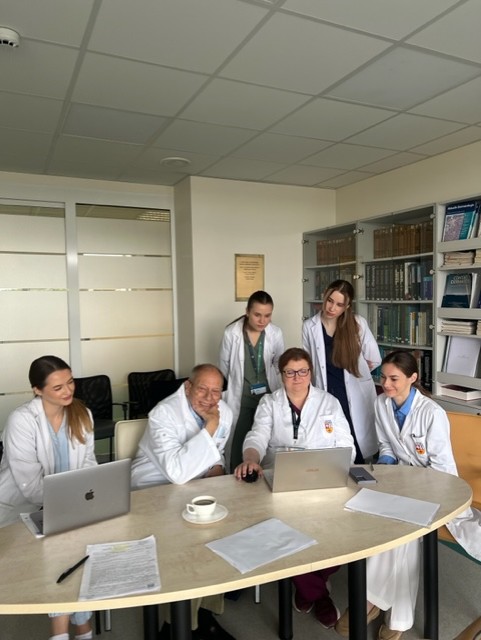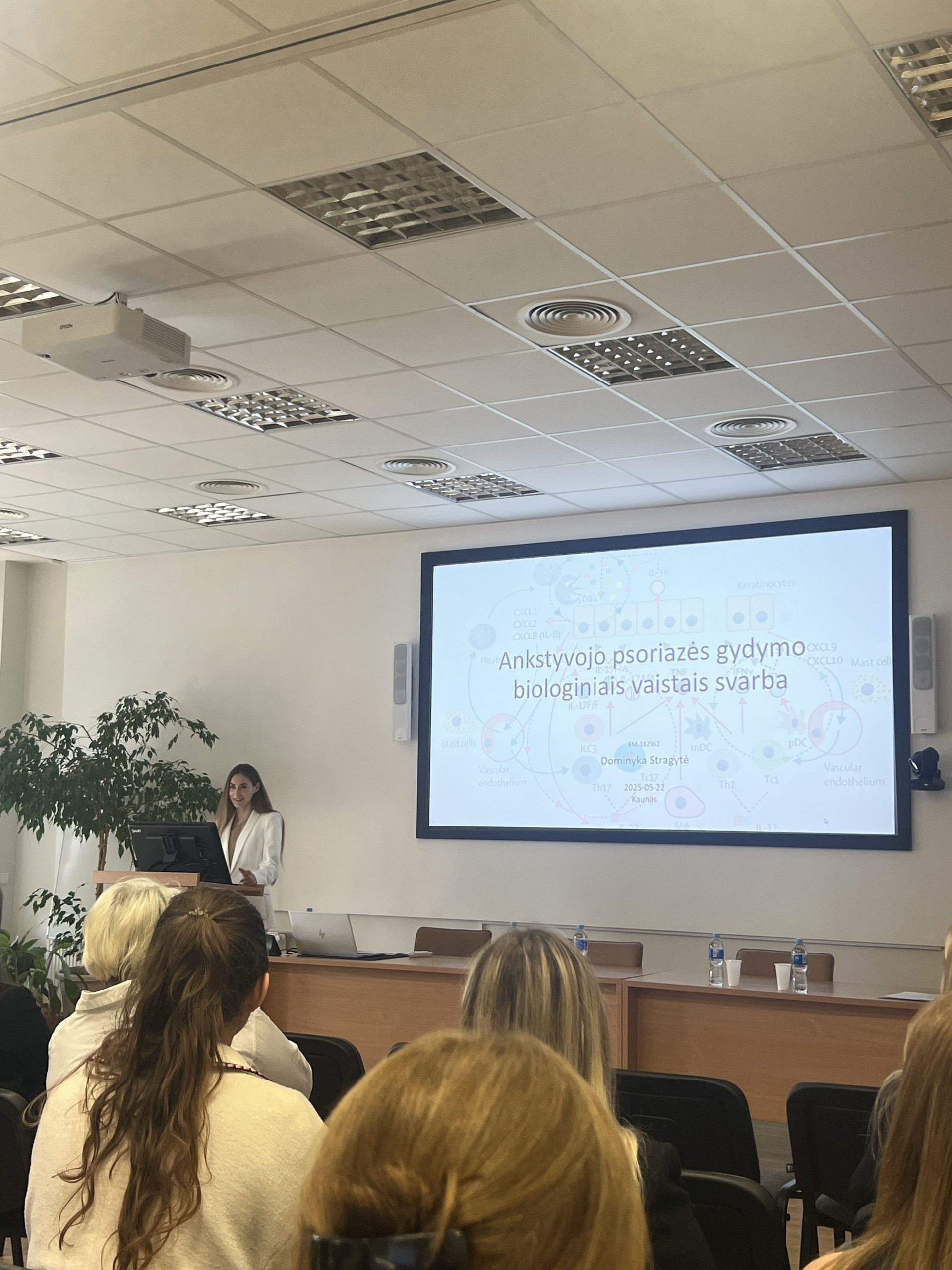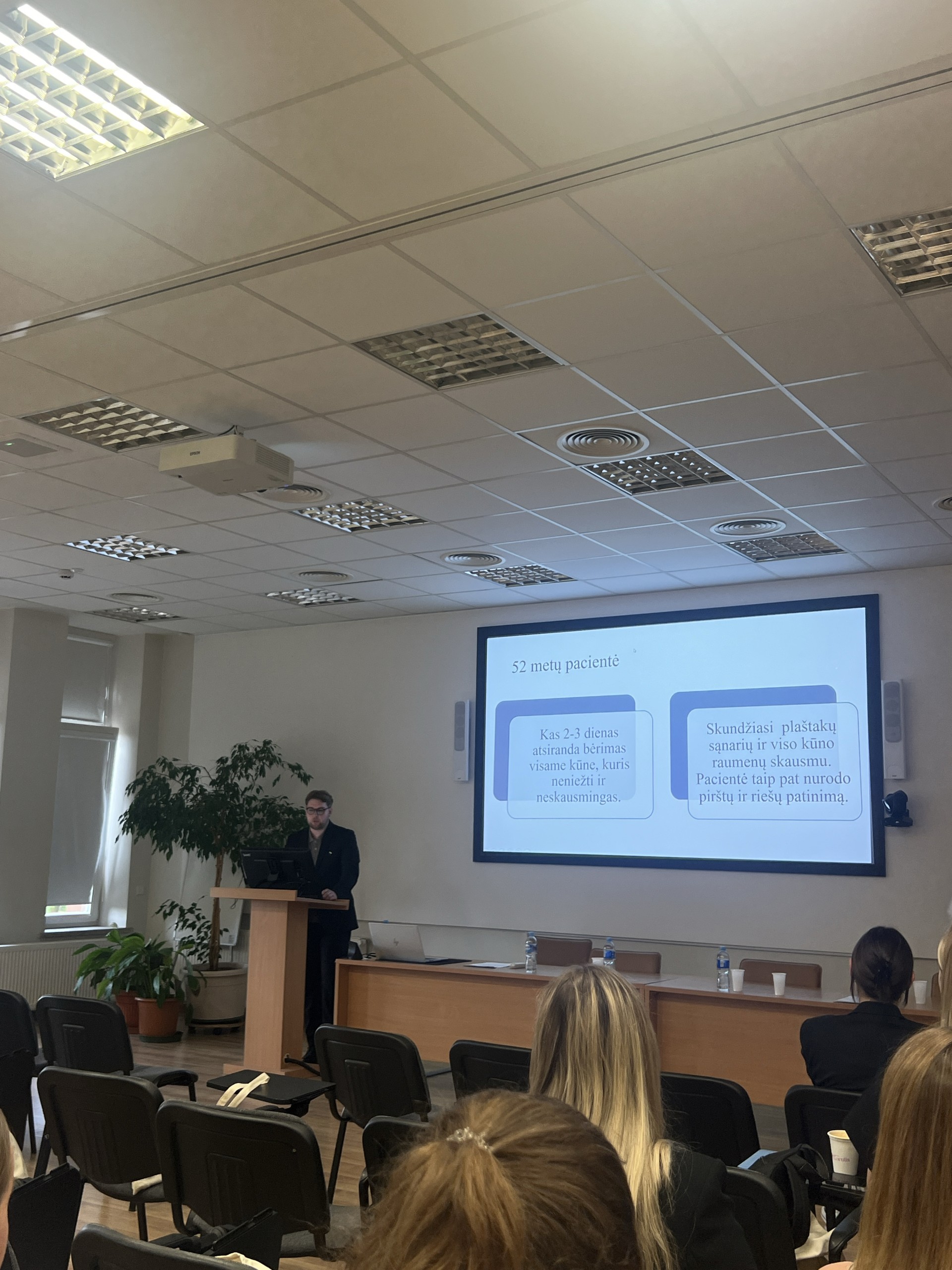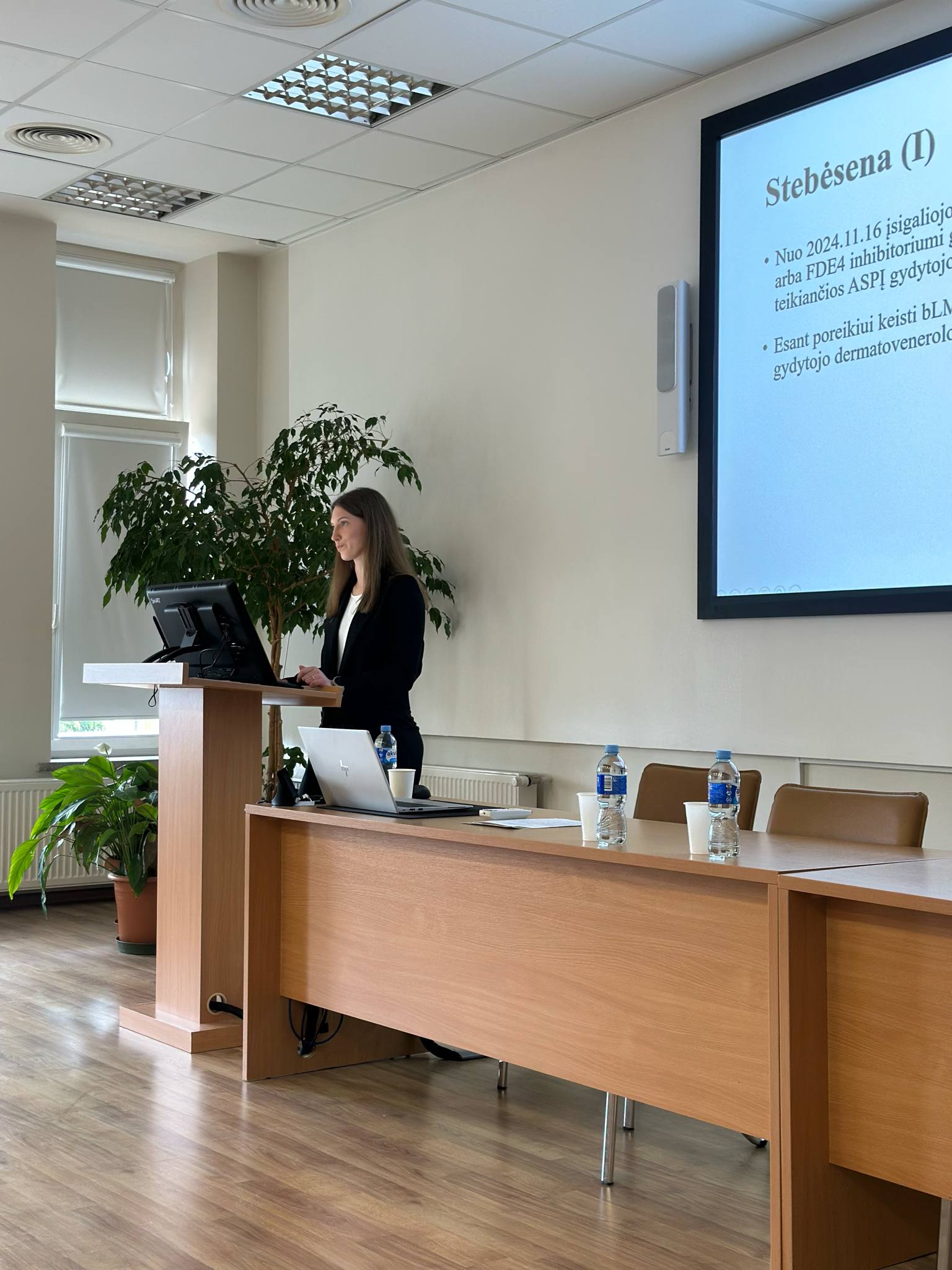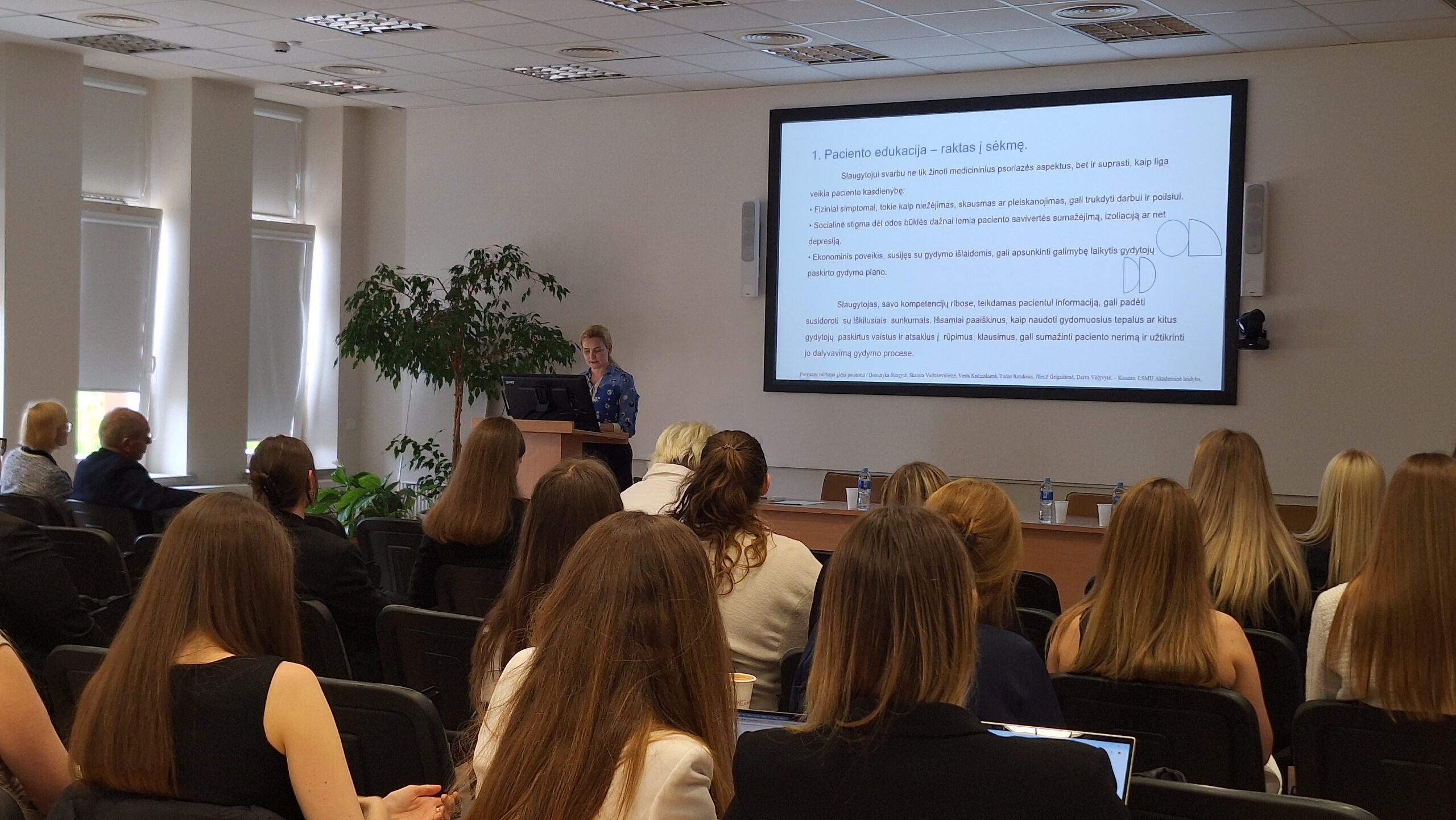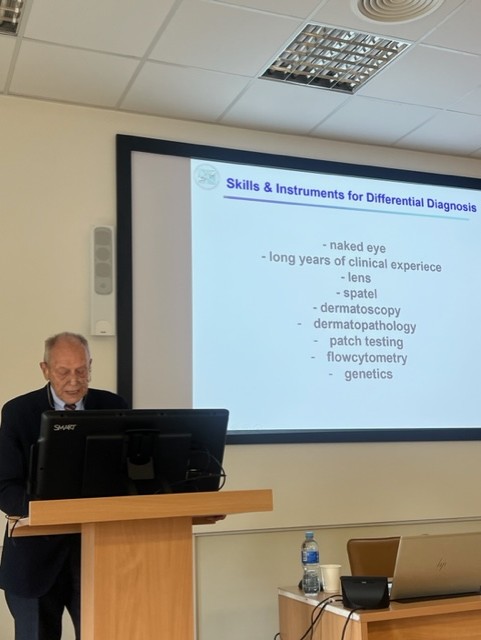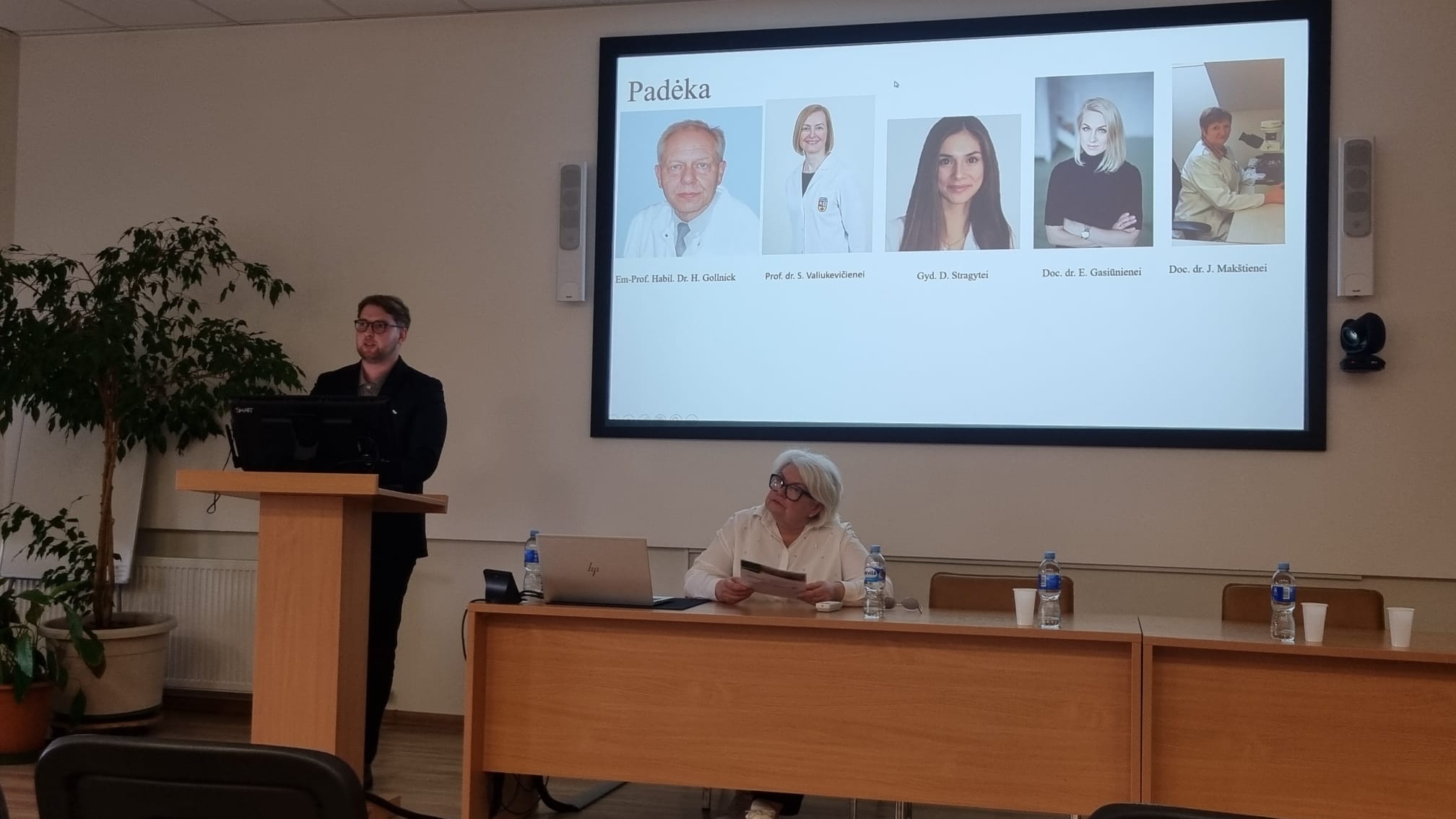Visiting Professor H. Gollnick’s Visit to LSMU: A Dialogue on Advances in Dermatological Science
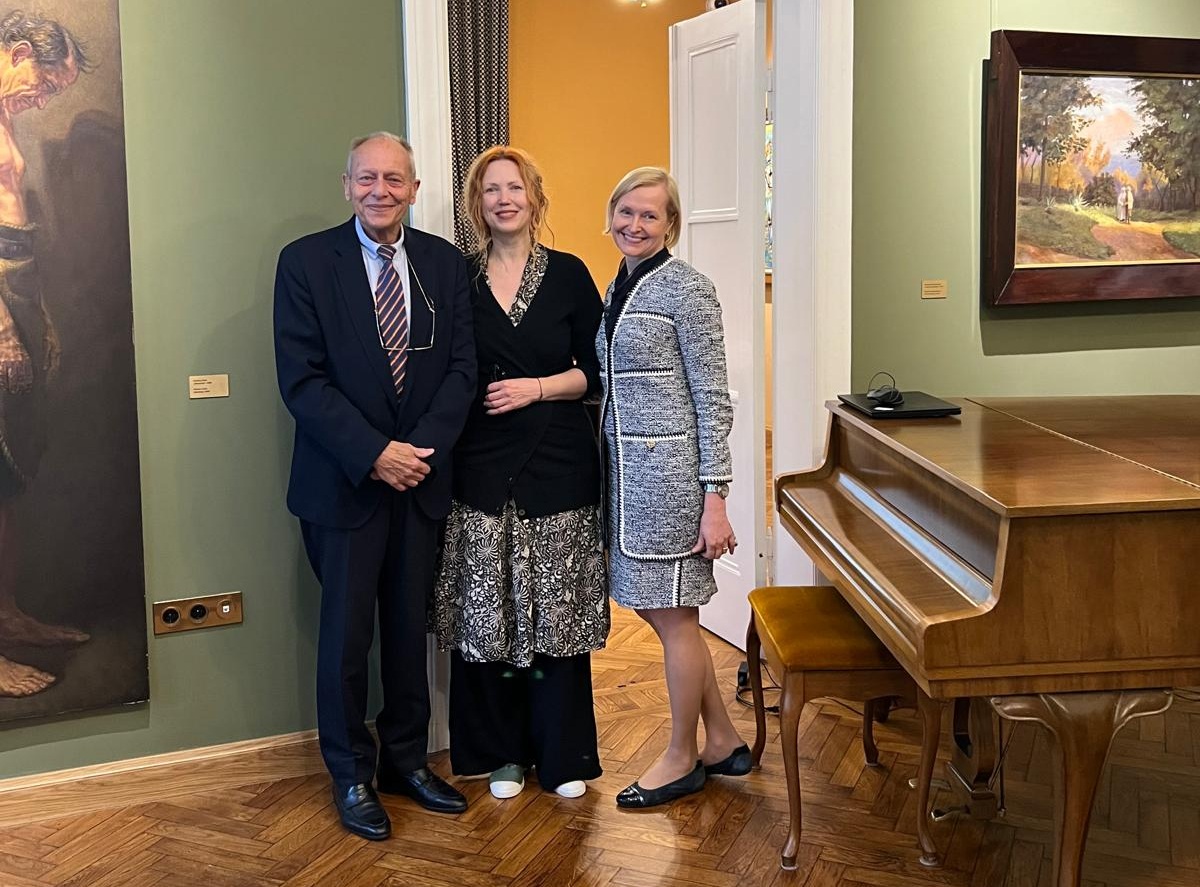
Prof. Emeritus Harald Gollnick, a long-time head of the Department of Dermatology, Venereology and Allergology at the Otto-von-Guericke University of Magdeburg , visited the Lithuanian University of Health Sciences (LSMU) once again.
This is not the first visit of the professor – cooperation with him and his clinic has been going on since 1998, when the then doctoral student, the head of the Department of Skin and Venereal Diseases of LSMU Professor Skaidra Valiukevičienė went for the internship at Magdeburg.
Prof. H. Gollnick is one of Europe’s most prominent dermatologists, with more than 700 of his publications cited over 20 000 times, and his H-index stands at 72. He is a former member and former president of the Dermatologists Society of Germany and the European Union of Medical Specialists (UEMS) Dermatovenerology Committee and actively participates in editorial boards of international journals.
At LSMU, the professor started the lecture series by discussing the morphology of skin rashes. He then went on to discuss pre-invasive illnesses, atopic dermatitis, contact dermatitis, and skin cancer. He asserts that direct contact is always important for an appropriate diagnosis and that Teledermatology will never be able to replace it.
One of the objectives of the visit was to conduct clinical case studies. With the Dr. Dominyka Stragytė, residents and students’s complex cases were analysed: skin T-cell lymphoma, lightning acne, universal alopecia. The importance of histological diagnosis was emphasised. Prof. Gollnick in collaboration with Assoc. Prof. Dr. Jurgita Makštiene analysed the digital images of biopsies in detail.
Cooperation with the University of Magdeburg has contributed significantly to the progress of dermatovenerology in Lithuania. Until 2002, clinical onco-dermatology, dermato-pathology, dermato-surgery and other contemporary areas of the field were not implemented in Lithuania as they are today. The Erasmus agreement was signed at the professor’s initiative, paperwork for an extension of the residency period was prepared, and the LSMU specialists returned with fresh insights that were put into practice following their internships.
During the visit, a conference of Kaunas Region Society of Dermatology and Venerology was organised. Prof. Andrius Macas, Dean of the LSMU Faculty of Medicine, opened the conference and shared on how much he was impressed by the professor’s contribution to the calibre of research and the creativeness of treatment. The conference was attended by 60 doctors, students and nurses. The main topic was the control of chronic inflammatory skin diseases.
LSMU doctoral student Dr. D. Stragytė delivered a report on early treatment of psoriasis, emphasising the importance of genetic and inflammatory factors. Dr. V. Rimšaitė and Dr. D. Stanienė discussed the application of biological therapy at the secondary and tertiary level, highlighting the changes in the Ministry of Health Order of 2024, which allowed treatment to continue in the wider circle of the treatment network.
Prof. Gollnick conducted the main lecture on differential diagnosis of psoriasis – he emphasised that clinical evaluation, anamnesis and correctly performed biopsy remain the most important tools for differentiating psoriasis from lymphomas, allergic or drug-induced dermatitis.
LSMU Prof. S. Valiukevičienė gave a report on the peculiarities of psoriasis in children – its prevalence increases with age, and children with severe form can be treated with biological therapy.
Rare clinical cases were presented by young physicians and students at the conference. Gvidas Mikalauskas talked about hypocomplementemic urticarial vasculitis (HUV) treated with omalizumab. Beatričė Kolesinskaitė and her team presented on a very rare Degos disease (malignant atrophic papulosis). Austėja Dieninytė was pleased with the opportunity not only to present the case, but also to discuss it directly with the professor. She emphasised that his courteous communication techniques and constant diagnostic thinking were the most remarkable.
Students – Livija Bakšienė, Evelina Malūkaitė, Katrina Gaidulevič, Luka Mikulytė – shared their impressions that this visit has become not only a valuable academic experience, but also an inspiration for professional growth.
The visit was completed with a visit to LSMU Departments and discussions on further scientific cooperation. Prof. H. Gollnick undoubtedly left a deep imprint on the LSMU community – both as a lecturer and as a master of clinical dermatology, helping Lithuanian dermatology to grow stronger in an international context.


